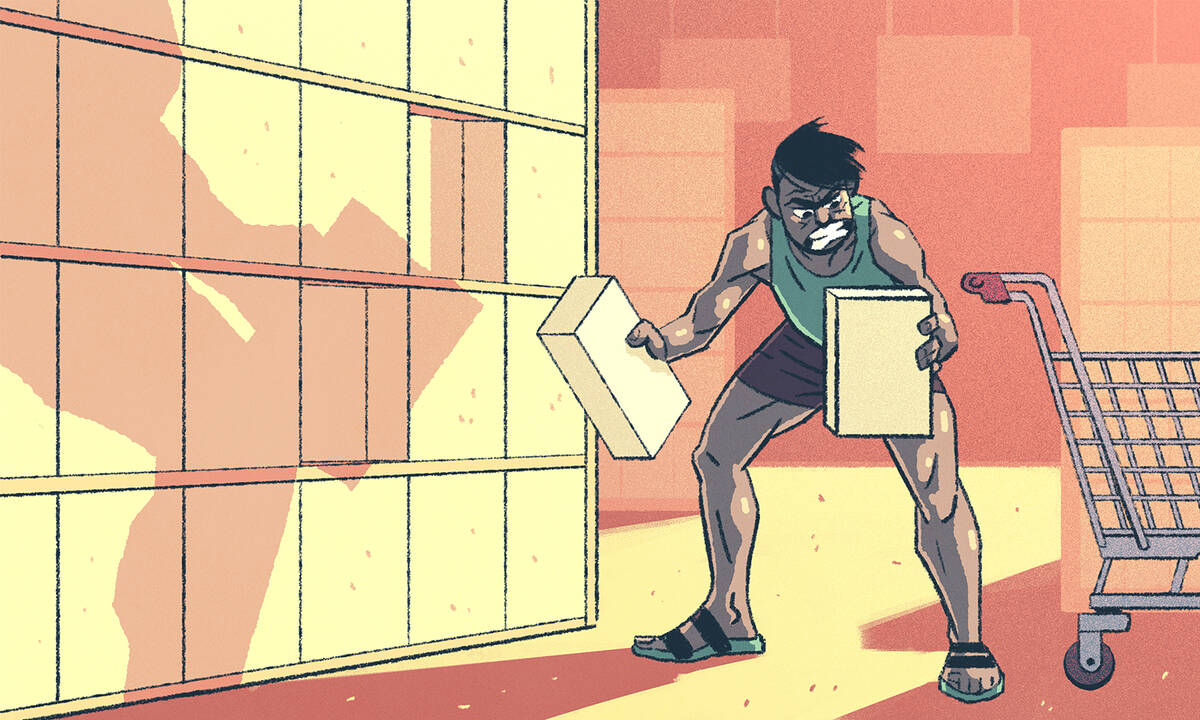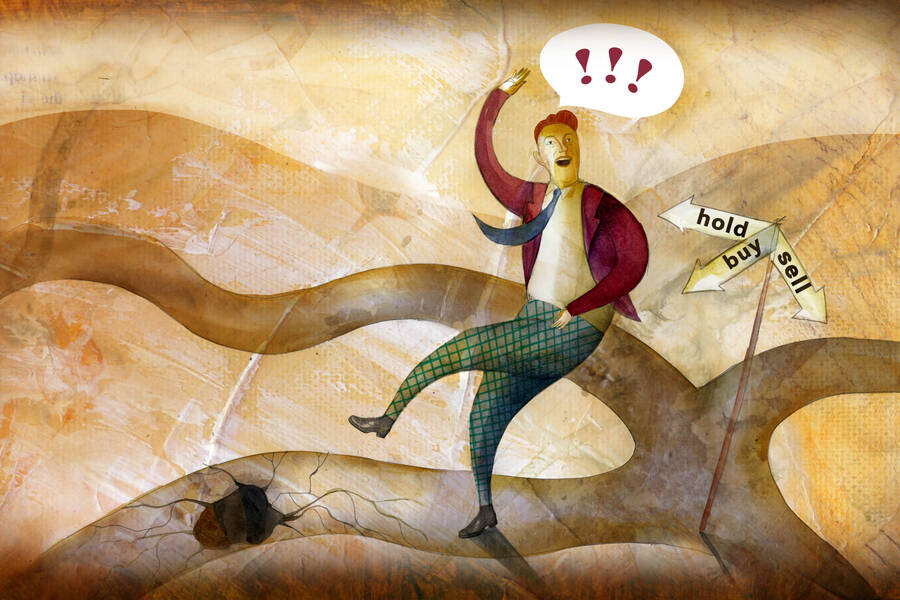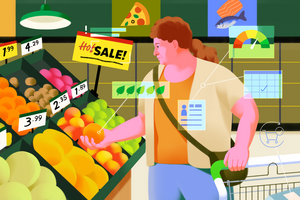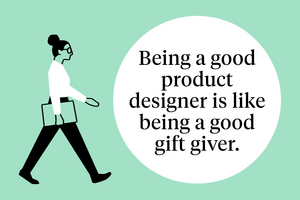Marketing Aug 1, 2019
How Anger Can Help Us Make Better Decisions
Yes, you read that right: Sometimes being mad helps you focus on what you want.

Michael Meier
You’re headed to the store to purchase a new computer. On the drive there, a car cuts you off, nearly causing an accident. You arrive at the store angry. Should you wait until you calm down before you make your purchase?
Research from Kellogg’s Michal Maimaran suggests not. In a series of studies, Maimaran and colleagues showed that anger can actually cause consumers to make more goal-oriented choices.
Not only that, she and her collaborators—Uzma Khan of the University of Miami and Alexander DePaoli of Northeastern University—showed that these angry consumers were less likely to delay making a choice, were less likely to compromise, and were more satisfied with their choices than those who were fearful, sad, or feeling neutral.
In short, being angry can make your shopping experience more focused and fruitful.
“We usually think of anger as negative, in the sense that it has a bad effect on us and therefore would inhibit goal pursuit,” says Maimaran, a research associate professor of marketing. “But anger can actually be beneficial for us. It’s surprisingly counterintuitive.”
Feeling in Control
We like to think of ourselves as rational human beings who always make decisions consistent with our goals. But, of course, that is not always the case. When given multiple options, consumers often get bogged down in making trade-offs, ultimately compromising their original goals. “When consumers are unsure of which option to choose, they often avoid choosing altogether or go for the middle option, which can fall short of their goal,” Maimaran says.
At the same time, emotions can also systematically affect decision-making. For example, prior research has shown that angry people feel more certain and in control of their decisions. This led Maimaran and her colleagues to wonder whether angry consumers would actually make
choices that were more consistent with their goals.
Angry Consumers Are More Goal-Oriented
To study this, the researchers designed six studies to examine how anger affects consumer choices.
In the first study, one group of online participants was primed to think about speed, and another, capacity, by being asked to read a car review that stressed either speed or capacity, respectively. A third group was not primed with any characteristic.
Half of each group was then encouraged to feel angry by being shown pictures of angry faces and being asked to write about a time they, themselves, felt angry. The other half was not made to feel angry.
“It is counterintuitive, but there could be situations where we make the right decision when we are angry.”
All participants were then asked to choose between two laptops that had different speed and capacity options. The angry participants who had been primed with the speed goal rated the faster laptop as the better option compared to those who hadn’t been made to feel angry and compared to the angry participants not primed with any goal. The same was true for the angry participants who were primed to consider capacity.
“It shows that even when you are primed to think of speed, you are not necessarily going to choose the fast option,” Maimaran said. “You also have to be angry to choose the option that best suits the goal you are primed with.”
How Anger Affects Decision-making
Next, the researchers wanted to understand whether it was specifically anger that caused participants’ goal-directed behavior, and not just any negative emotion. So they compared the effects of anger with those of fear.
Participants described a time in which they felt either angry or afraid, and were then told to choose between different pairs of objects. Each time, the choice was presented with a defined goal, such as “you are looking for a lightweight flashlight.”
Participants who had been primed to feel angry were more likely to choose the objects that aligned with those goals than fearful participants. Participants also rated their own state of arousal—meaning how excited, bored, or stressed they were—and these various states did not affect their choices.
The researchers found that another group of participants was less likely to defer a decision between two roundtrip airline tickets when they were angry than when they were sad. These participants also switched between the two ticket options fewer times, and took less time to choose overall. Yet another experiment showed that participants were less likely to engage in making trade-offs and choosing a middle-of-the-road, compromise option when they were angry.
Angry Consumers Are More Satisfied
Are angry consumers more satisfied with what they choose?
In the final studies, Maimaran and her colleagues tested if this is the case. Participants were asked to choose between cookies and a cash prize. A week later, they were contacted and asked how satisfied they were with their choice. Those who had been primed to feel angry were more satisfied with their prize choice than sad or neutral participants. Maimaran and her colleagues replicated this result when letting another group of participants choose among restaurant gift cards, finding that angry consumers were more satisfied with their choice.
“So not only are angry consumers making fewer trade-offs, taking less time to choose, and making more goal-consistent choices, they are eventually more satisfied with what they choose,” Maimaran says.
A “Tricky” Tool
Taken as a whole, the results indicate that anger can be an important tool for marketers, as long as it’s used in a subtle, smart way.
“You don’t want consumers becoming angry with your product or company,” Maimaran says. “You cannot use it as a blanket emotional target. We just show that in certain circumstances, anger can have beneficial results.”
Anger is already used as a tool to guide certain behaviors. Political campaigns, for example, often use anger against the other candidate to propel voters to the polls. Maimaran said that managers could use a similar tactic if their employees are angry about company decisions, like salary freezes or layoffs. If these decisions are in response to external factors—such as the economy or a decrease in product demand—managers might be able to redirect employees’ anger elsewhere and use it to guide staff toward company goals.
“It can be tricky, but whenever possible, managers should consider using anger to direct employees in positive directions,” Maimaran says.
People should also consider how angry they, themselves, are when making decisions. Of course, there are times when it is smart to cool off before sending an irate email. But there are other times when your anger might help you to focus on what’s really important.
“It is counterintuitive, but there could be situations where we make the right decision when we are angry,” Maimaran says. “Anger can help lead us to good decisions.”




